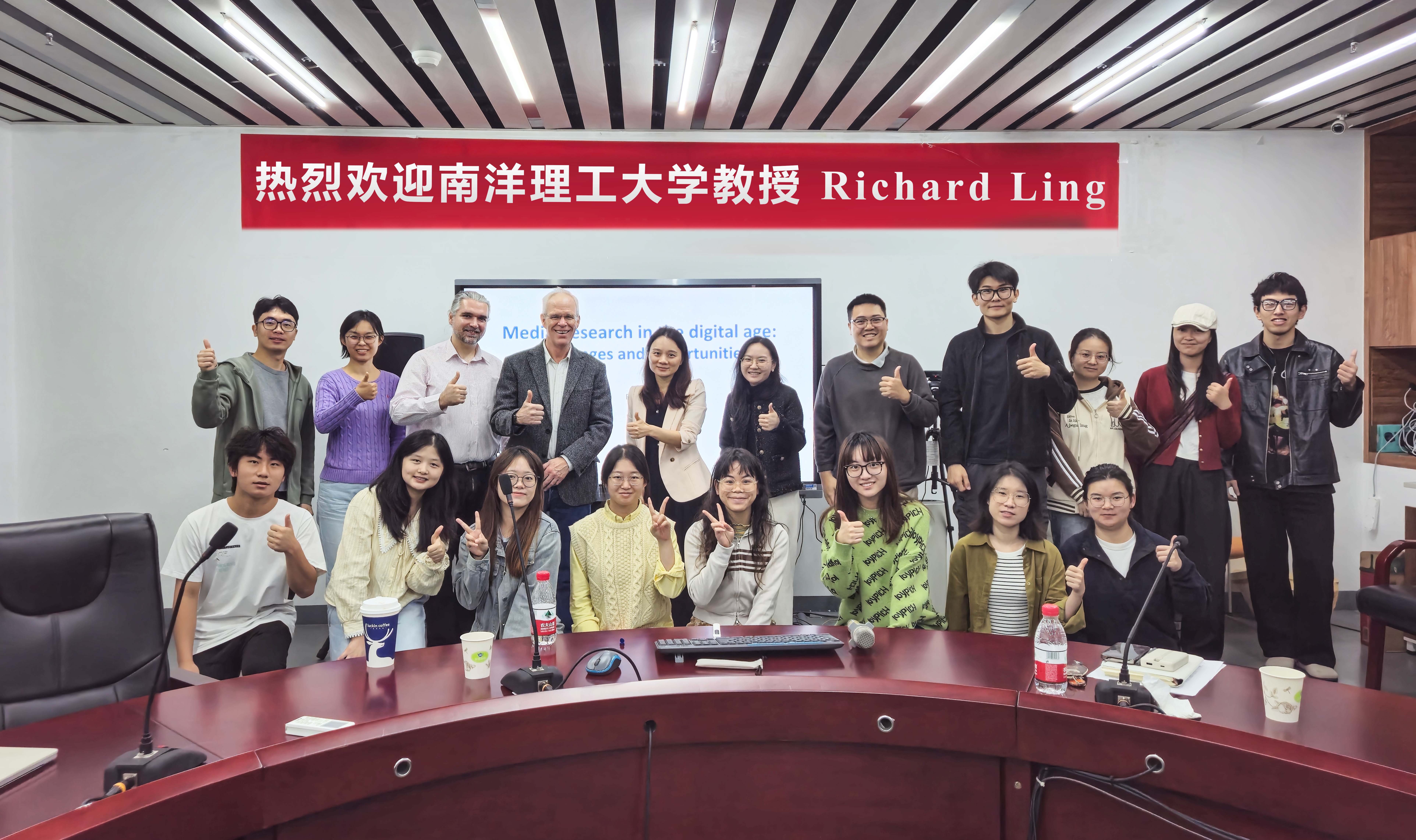On November 25, 2024, Professor Richard Ling, former Professor of Media Technology from the School of Communication and Information at Nanyang Technological University, Singapore, delivered an academic lecture on "Media Research in the Digital Age: Challenges and Opportunities" at the School of Media and Communication, with Professor Guang Yang hosting the event.
During the introduction, Professor Yang highlighted Ling's distinguished academic profile in the field of mobile communication research. With over 360 publications in SSCI and SCI journals and widespread citations, he was honored as an International Communication Association Fellow in 2016 and appointed editor-in-chief of the Journal of Computer-Mediated Communication in 2017.
The lecture explored the profound impact of artificial intelligence on social science research practices, focusing on four key aspects: research methods and tools, historical perspectives, AI's relationship with theory and methodology, and the evolving role of media researchers. Addressing “methods as research tools”, Ling emphasized that scientific inquiry is driven by deductive reasoning. He noted that the emergence of new tools can fundamentally transform scientific practices, urging researchers to maintain a concept of “instrumental rationality”.
Ling concluded by addressing critical questions surrounding AI in academic research, including explanation mechanisms, predictive accuracy, data nature, inherent biases, and content generation challenges. His insights prompted deep reflection on the opportunities and challenges presented by AI's growing integration into academic research.
The lecture was met with enthusiastic response, with students and faculty expressing profound appreciation for the nuanced exploration of digital-era media research.
